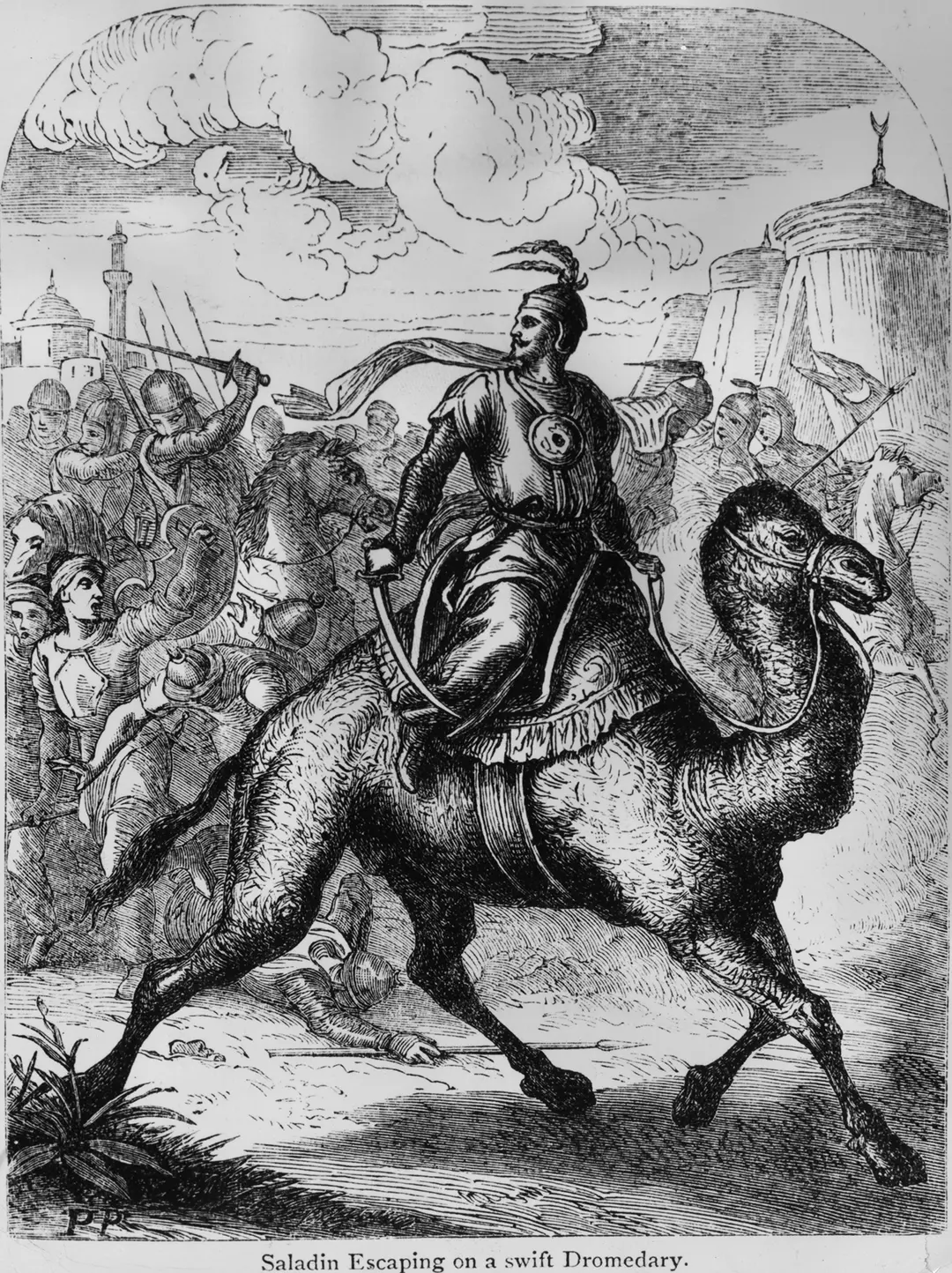Saladin, known in the West as Salah al-Din Yusuf ibn Ayyub, emerged as a pivotal figure in the history of the Muslim world during the 12th century. Renowned for his military acumen and political leadership, he famously triumphed over the Crusaders in the Battle of Hattin and reclaimed Jerusalem in 1187. His reign marked a significant period of unification among Muslim territories stretching from Egypt to Arabia, influencing the course of history for centuries.
Early Life and Rise to Power in Egypt
Born in Tikrit, Iraq, around 1137 or 1138, Saladin hailed from a Kurdish family with deep military roots. His father, Ayyub, and uncle, Shirkuh, were elite commanders under the powerful ruler Imad al-Din Zangi, who governed northern Syria. After growing up in Damascus and advancing through the military ranks, Saladin joined an army led by Shirkuh on a military expedition to Egypt. His exceptional skills and loyalty earned him recognition and responsibility.
In 1169, after the death of his uncle, Saladin was appointed to lead Nur al-Din's forces in Egypt. He also took on the title of vizier of the crumbling Fatimid Caliphate, which ruled Egypt at the time. After the death of the last Fatimid caliph in 1171, Saladin became governor and began a significant transformation of Egypt. He dismantled the Shia Fatimid regime and reestablished Sunni Islam as the dominant faith, strengthening Egypt as a base of Sunni power in the Near East.
Campaigns Against Fellow Muslims
With Nur al-Din's death in 1174, Saladin sought to expand his authority over the territories he had controlled and beyond. He launched campaigns to unify the Muslim lands against the growing threat of the Crusaders. His forces captured key cities like Damascus, Aleppo, and Mosul, significantly enhancing his power. Saladin also conquered Yemen, consolidating control over the Red Sea and enhancing his economic and military resources.
Saladin's strategic marriages, including that to Nur al-Din's widow, Ismat, allowed him to gain legitimacy and foster alliances among ruling dynasties. His proclamation of a jihad, or holy war, against the Crusaders galvanized widespread Muslim support, framing his efforts as a unifying cause for Islam.
Known for his eloquence and love of poetry, Saladin gained a reputation as a noble and generous leader. He fostered loyalty among his subjects and military leaders, earning respect across cultural lines. His legacy was crafted not only through military conquests but also through the narratives of his biographers, who celebrated his virtues and achievements.
Defeat of Crusaders and Capture of Jerusalem
After nearly a decade of skirmishes with the Crusaders, Saladin prepared for a full-scale assault in 1187. He assembled a formidable army, drawing troops from across his realm and bolstering his forces with an impressive Egyptian fleet at Alexandria. The turning point came on July 4, 1187, at the Battle of Hattin, where Saladin decisively defeated the Crusaders, inflicting significant casualties and capturing their leaders.
The victory at Hattin set the stage for a rapid succession of triumphs. Saladin’s forces advanced into the Kingdom of Jerusalem, and on October 2, 1187, the city surrendered after nearly 88 years under Christian control. Contrary to expectations of mass retribution, Saladin allowed the Christian inhabitants to purchase their freedom, showcasing his commitment to chivalry and mercy.
Following Jerusalem's capture, Saladin seized other significant cities, including Acre, Tiberias, Caesarea, Nazareth, and Jaffa. However, his forces failed to capture Tyre, where many Crusaders retreated after their defeats. Saladin's restraint and strategic choices reflected a broader vision of unity among Muslims and respect for the vanquished.

The Third Crusade and Saladin's Death
The recapture of Jerusalem ignited a fervent response from Christendom. In 1189, Pope Gregory III called for the Third Crusade, mobilizing Christian forces to reclaim the holy city. The campaign was led by three prominent monarchs: Frederick I “Barbarossa” of Germany, King Philip II of France, and Richard I “the Lionheart” of England.
The Crusaders laid siege to Acre, ultimately capturing it in 1191 and diminishing Saladin's naval power. Despite the relentless onslaught, Saladin's strategic brilliance enabled him to retain control over much of his empire. His diplomatic skills were evident during the negotiations with Richard the Lionheart, culminating in a truce in late 1192 that allowed for Christian pilgrimage to Jerusalem while maintaining Muslim sovereignty over the city.
Saladin passed away in March 1193, exhausted from a life marked by continuous military campaigns. His death at the age of 55 left a profound impact on the region. He had given away much of his wealth to his subjects, reportedly leaving behind insufficient funds for his own burial. The coalition of Muslim states he had assembled began to fracture after his passing, yet his legacy endured through his descendants in the Ayyubid dynasty, who continued to rule in Egypt and Syria for several generations.
Legacy
Saladin's legacy is a complex tapestry woven from military triumphs, political savvy, and cultural patronage. He is celebrated not only as a formidable military leader but also as a paragon of virtue and generosity. His actions laid the groundwork for future Muslim unity against external threats and served as a catalyst for Islamic identity during a time of fragmentation.
In the centuries that followed, Saladin became a legendary figure in both Muslim and Western histories, often romanticized in literature and film. His embodiment of chivalric ideals and military prowess continues to resonate, making him an enduring symbol of resistance and unity in the face of adversity.

